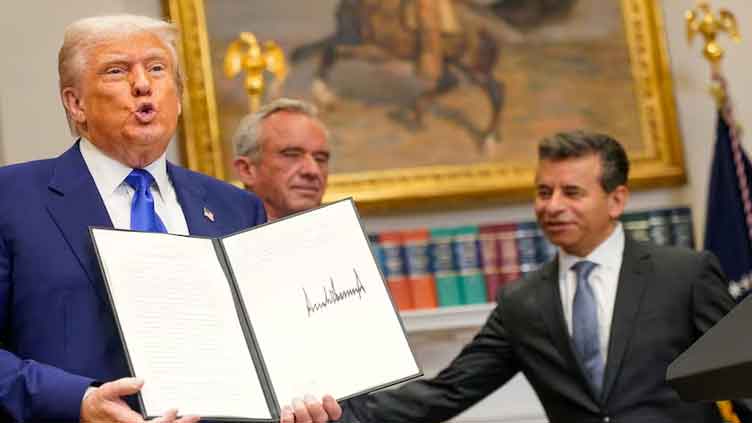Trump signs executive order to demand pharma industry cuts prices

Trump signs executive order to demand pharma industry cuts prices
WASHINGTON (Reuters) - US President Donald Trump signed a wide-reaching executive order on Monday directing drugmakers to lower the prices of their medicines to align with what other countries pay that analysts and legal experts said would be difficult to implement.
The order gives drugmakers price targets in the next 30 days, and will take further action to lower prices if those companies do not make "significant progress" towards those goals within six months of the order being signed.
Trump told a press conference that the government would impose tariffs on companies if the prices in the U.S. did not match those in other countries and said he was seeking cuts of between 59% and 90%.
"Everybody should equalize. Everybody should pay the same price," Trump said.
Investors were skeptical about the order's implementation, and shares, which had been down overnight on the threat of "most favored nation" pricing, recovered and rose in early morning trade on Monday.
The United States pays the highest prices for prescription drugs, often nearly three times more than other developed nations. Trump tried in his first term to bring the United States in line with other countries but was blocked by the courts.
Trump's drug pricing proposal comes as the president has sought to fulfill a campaign promise of tackling inflation and lowering prices for a host of everyday items for Americans, from eggs to the gas pump.
Trump said his order on drug prices was partly a result of a conversation with an unnamed friend who told the president he got a weight loss injection for $88 in London and that the same injection in the U.S. cost $1,300.
If drugmakers do not meet the government’s expectations, it will use rulemaking to bring drug prices to international levels and consider a range of other measures, including importing medicines from other developed nations and implementing export restrictions, a copy of the order showed.
Trade groups representing biotech and pharmaceutical decried the move.
"Importing foreign prices from socialist countries would be a bad deal for American patients and workers. It would mean less treatments and cures and would jeopardize the hundreds of billions our member companies are planning to invest in America," PhRMA CEO Stephen Ubl said in a statement.



